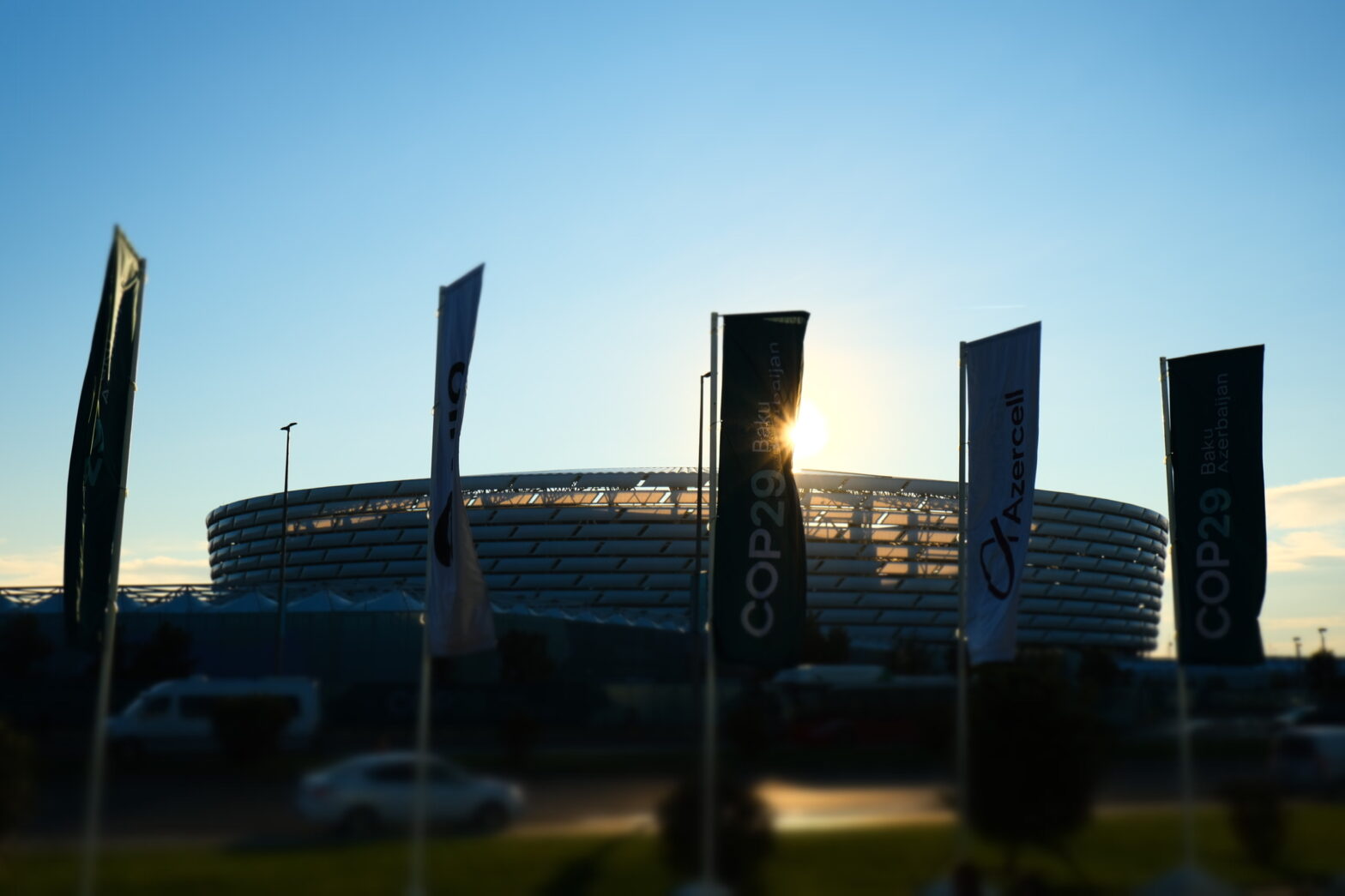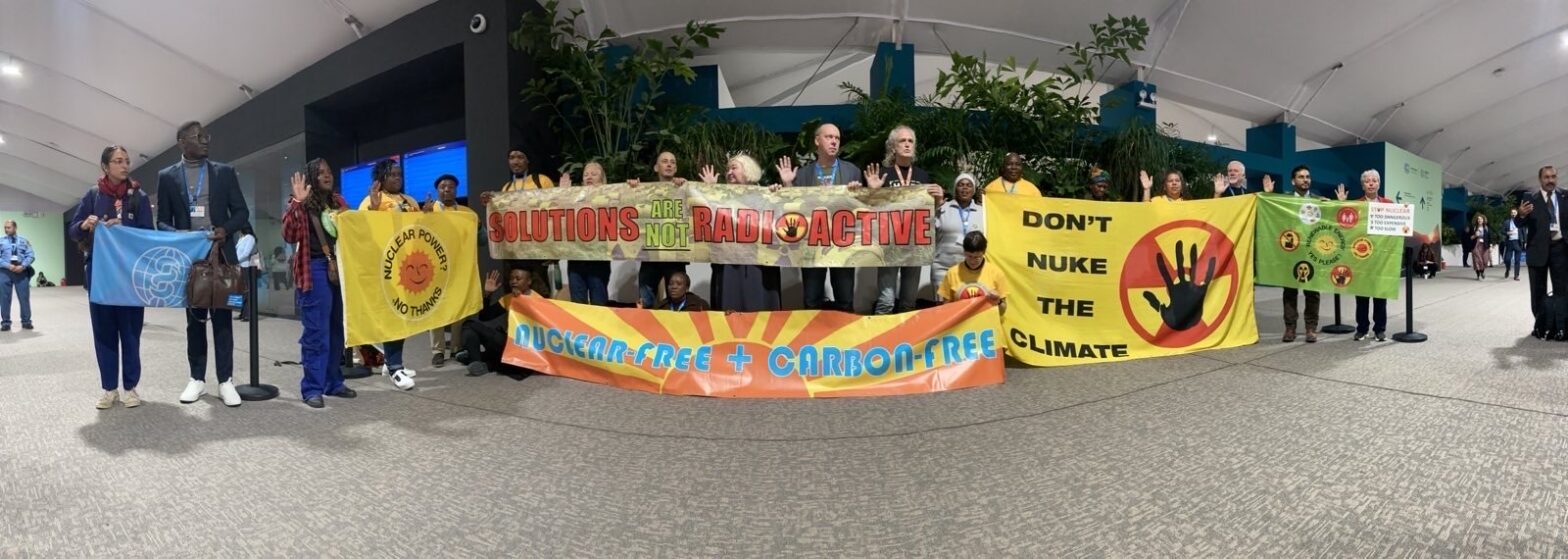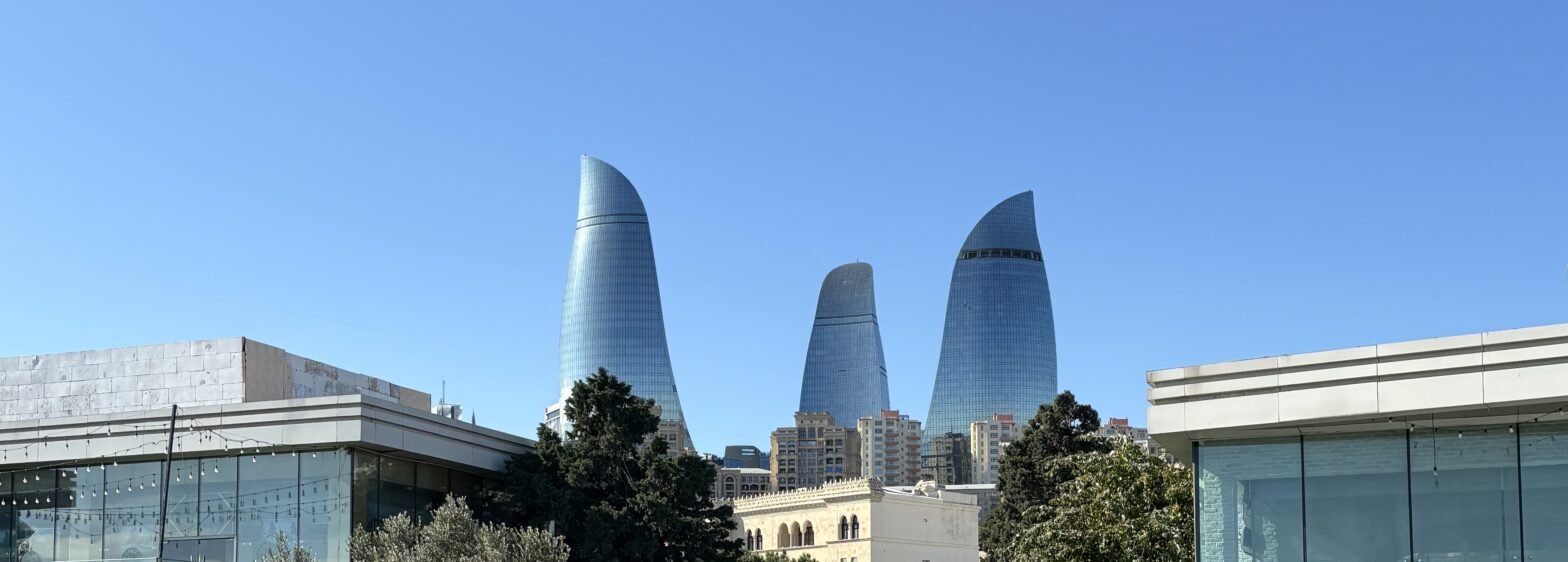By Ella Reese-Clauson ’26, International Political Economy | In this longer essay-format post, follow along on the path of my hope at COP29, starting first with some of the more encouraging sessions I went to before digging into the fissures that made that faith vanish. I will bring the reader with me as I witness firsthand some of the conference’s many failures but also highlight a few successes that leave me feeling a sense of faith, no longer in the UNFCCC and its institutions but in the people that make COPs run.
Author Archives: Ella
Bananas, Smiles, and Atomic Bombs: Attitudes toward Nuclear Energy at COP29
By Ella Reese-Clauson ’26, International Political Economy |
On the first Friday of COP29, I entered the generally professional and sterile Blue Zone to the sight of a small line of business-clad delegates waiting to have their picture taken with a pair of attendees dressed in inflatable polar bear suits. One after another, the delegates excitedly posed with the polar bears, complying obediently when the photographer told them to “say cheese for nuclear energy.” One of the bears’ peers—dressed in a bright blue T-Shirt plastered with pro-nuclear energy slogans—handed out bananas, smiling as he professed that living next to a nuclear power plant for a one year period exposed you to the same amount of radiation as a single banana. His thesis? If we’re not scared of bananas, we shouldn’t be afraid of nuclear energy. The man, a nuclear engineer from the UK, passed me a bruising brown banana that was perhaps not the happy, healthy image he was going for. When I asked him where I could find this report, he told me to look on the website of any power plant. Clearly, their sources were unbiased.
First Impressions in Baku: Ethnic Cleansing, Oil Wealth, and Climate Reckoning at COP29
By Ella Reese-Clauson, ’26, International Political Economy |
We entered the Baku airport at two in the morning local time after a nearly twenty-four hour travel day, amazed by the sloping, modern wooden arches of the terminal. Signs for COP29 in a now-familiar teal color lined the hallway. Our shuttle driver pointed out notable buildings as he maneuvered the still-crowded streets of Azerbaijan’s capital. The Baku Olympic Stadium, the venue hosting COP29, illuminated the skyline as we entered the city, its lighted exterior shining the blue, red, and green of the Azerbaijan flag. The famed flame towers—a trio of sleek, flame-shaped buildings that are three of the city’s many expensive skyscrapers built with new oil money—played a light show on repeat of the country’s waving flag.


